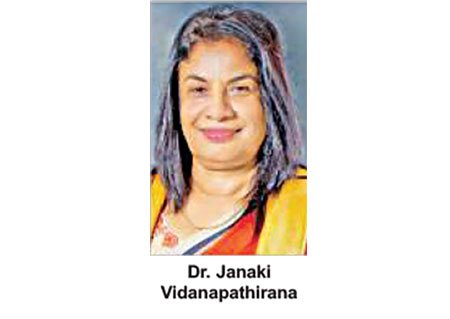by Suresh Perera
In the backdrop of concerns expressed by medical experts over ingesting foodstuffs with carcinogenic aflatoxins, Sri Lanka has witnessed a disturbing spike in cancer with 33,226 fresh cases on the basis of 89 new patients per day reported in 2019.
The number of cancer-related mortalities during the year under review was 16,691 with 46 patients dying of the dreaded disease per day, according to new statistics.
“There were 75,909 prevalent cases of cancer in Sri Lanka’, the Health Ministry’s National Cancer Control Program (NCCP), said.
Non-Communicable Diseases (NCDs) account for almost 83% of total deaths in the country and the proportional mortality due to cancer is estimated to be 14%, it said.
“Newly detected cancer cases have shot up from a moderate 13,372 in 2005 to more than 30,000 in 2019”, says NCCP’s Acting Director, Dr. Janaki Vidanapathirana.
“There has been a steady surge in new cancer cases over the past 14 years”, she said.
Medical experts contend that aflatoxins (a family of toxins produced by certain fungi found on agricultural crops such as maize (corn), peanuts, cottonseed, and tree nuts) in the human system can cause a carcinogenic reaction over a period of time.
Director-General of the Sri Lanka Standards Institution (SLSI), Dr. Siddika Senaratne’s recent assertion that, apart from imported coconut oil, certain other consumables also contained aflatoxins, triggered a controversy over the safe consumption of certain foodstuffs.
Amidst public fears over products identified on social media platforms, rightly or wrongly, the critical question that emerged was for how long people had been consuming such foodstuffs and whether they continue to do so despite the claimed carcinogenic substances in them.
There was confusion in the public mind as Dr. Senaratne declined to identify the contaminated products saying that naming them will reflect adversely on the trade.
“They should be given time to remedy the shortcomings”, she said.
Asked whether the presence of aflatoxin in imported coconut oil, as discovered recently, and possibly other foodstuffs could have contributed towards the exponential increase in the incidence of cancer in the country, Dr. Vidanapathirana said that exposure to any aflatoxin will increase the risk of cancer, but it depends on the duration and the quantum ingested.
There are usually 800-850 new liver cancer cases per year caused mainly due to alcohol consumption, tobacco smoking, hepatitis b and c and aflatoxins. Cancer is of multifactorial origin. Tobacco causes 15 types of cancers in the human body, while alcohol accounts for five types, the Consultant Community Physician explained.
Leading the list of top 10 cancers in Sri Lanka amongst males was mouth, lip and tongue cancer at 14% in 2019 followed by trachea, bronchus and lung (9%), colorectal (8%) oesophagus (7%), prostate (7%), larynx (4%), bladder (4%), lymphoma (4%), thyroid (3%) and others (40%).
Amongst females, breast cancer topped the list at 26% followed by thyroid (13%), colorectal (7%), ovary (6%), oesophagus (5%), uterus (4%), ovary (6%) trachea, bronchus and lung (3%), lymphoma (3%), oral (3%) and others (25%).
Oral cancer in Sri Lanka remains the highest in the world, Dr. Vidanapathirana said, while stressing that a structured program of action to arrest the alarming trend is the need of the hour.
Cancer is the uncontrolled growth of abnormal cells in the body. Cancer develops when the body’s normal control mechanism stops working. Old cells do not die and instead grow out of control, forming new, abnormal cells. These extra cells may form a mass of tissue, called a tumor. Some cancers, such as leukemia, do not form tumors.
“Cancer can be prevented through early detection”, she noted, while warning that obesity, tobacco smoking, alcohol consumption and physical inactivity have been identified as some of the primary causes that lead to the dreaded disease.
Asked whether consumption of milk activates dormant cancer cells, she replied “I don’t know. There’s no such evidence”
However, the intake of dairy milk is associated with a greater risk of breast cancer in women, according to a new study conducted by researchers at Loma Linda University Health.
Dairy, soy and risk of breast cancer: Those confounded milks, published in the International Journal of Epidemiology, found that even relatively moderate amounts of dairy milk consumption can increase women’s risk of breast cancer — up to 80% depending on the amount consumed.
First author of the paper, Gary E. Fraser, MBChB, PhD, said the observational study gives “fairly strong evidence that either dairy milk or some other factor closely related to drinking dairy milk is a cause of breast cancer in women, the ScienceDaily reported in 2020. (https://www.sciencedaily.com/releases/2020/02/200225101323.htm)































